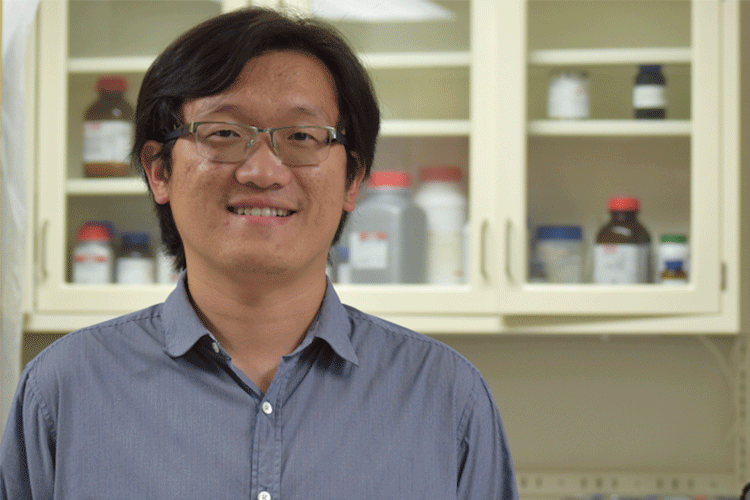The UWM Research Foundation has awarded seed funding to three UWM faculty members to develop an emerging strategy—the use of bioreactors—to help safely remove per- and polyfluoroalkyl substances (PFAS) from the environment. Banned by the EPA, these manmade chemicals, which are toxic to humans and wildlife, do not break down and remain in our soil and water.
The $50,000 in funding came from the foundation’s Catalyst Grant Program, which supports promising research and development in areas where UWM has the greatest potential to impact the regional economy through commercialization activities.
The grant was awarded to Shangping Xu, associate professor, geosciences, Yin Wang, associate professor, civil & environmental engineering, and Erica Young, professor, biological sciences, to develop cost-effective bioreactors that can accumulate PFAS and aid in its removal from water.
Bioreactors, Wang explains, aim to remove PFAS in challenging environmental conditions, such as high dissolved organic carbon and salt concentrations. “Conventional technologies are not efficient for PFAS removal under such conditions,” he says.
Engineering ways to safely remove PFAS from the environment—by using advanced materials and technologies—is one of Wang’s areas of expertise. His PFAS-related research has been funded by the U.S. Department of Defense, the Wisconsin Department of Natural Resources and the IUCRC Water Equipment and Policy Center.
About UWM Research Foundation catalyst grants
Now in its 14th year, the Catalyst Grant Program, supported by the Lynde and Harry Bradley Foundation, has awarded over $5.5 million in seed funding for more than 100 projects. These projects have led to 55 issued patents, 31 license/option agreements and more than $23.4 million in follow-on investments in UWM technologies.
Wang’s catalyst grant was one of three new UWM research projects, two of which include researchers from the College of Engineering & Applied Science, that will divide $150,000 in Catalyst Grant seed funding from the UWM Research Foundation.
